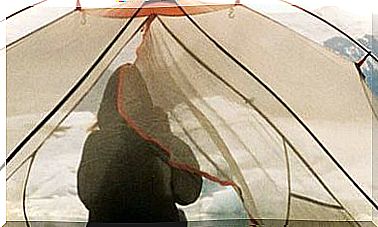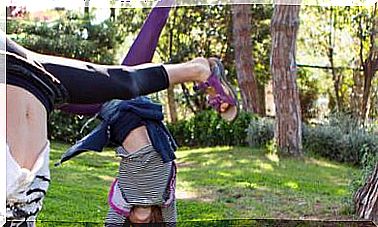9 Tips To Say Yes To Life And Yourself
Life is not what happens in our mind, but what it is. To truly live you have to be brave to accept what is happening, to feel what moves us, even if it means going against the current of social norms and taboos.

Our circumstances can vary at different times in life and it can be difficult to accept them. Saying yes without judgment or reproach to what life brings us will allow us to adjust to our new needs. These 9 tips will help you.
1. Look at each other without judgment
Society leads us to reflect and judge everything we do and what happens to us, to label it as good or bad. These judgments are limiting beliefs that lead us to repeat the same behavior patterns. They constitute a way to connect with the authentic essence and with our needs.
Identifying the “shoulds” that we impose on ourselves is the first step in broadening our vision of ourselves.
Getting rid of good / bad Manichaeism will allow what you feel to emerge without internal fights and will make it easier to give responses adapted to each situation, to say “yes” without judgment.
2. Give voice to the damaged party
The wounds that we are going to suffer in our lives lead us to develop defense mechanisms to avoid pain. In childhood they helped us survive, but afterwards they have perpetuated an outdated and limiting way of functioning.
Being able to give voice to that damaged part that we try to keep hidden, to look at it with love and without judgment, as if we were an impartial witness, will help us to get out of the conflict.
Meditation is a great ally in this process, since it helps us to build an internal witness that contemplates the wound with compassion, something fundamental for healing.
3. Accept pain without denial
When something unexpected happens to us, which is not pleasant and frustrates us, it is normal for there to be a period of denial, pain and anger. Therefore, the expression of all these feelings is a phase that facilitates the acceptance of what happened.
As long as we do not remain anchored in the role of victims and obsessed with why, since then the natural pain will end in suffering fed by our thoughts.
As the last phase, it is necessary to embrace sadness for acceptance, but without becoming addicted to suffering. It is necessary to accept the pain and see beyond.
4. Enhance skills
We live in a society that makes us believe that “if you want, you can” and that we can be whatever we want to be. But what it is about is to accept the qualities we have and develop those that make us unique, instead of striving to achieve unattainable goals with effort, which is a waste of energy and a source of suffering.
How to know those qualities that make you unique? They are those things that are easier and more natural for you.
5. Go beyond yourself
Taking the time to connect with nature can help us feel that we are part of something that goes beyond ourselves.
It will help us feel that we are just one piece of a bigger puzzle.
One can feel fuller when thanking their ancestors for the path they traveled and have brought us here. And what we achieve will facilitate the evolution of humanity. This way of seeing is contrary to the cult of individualism and more liberating.
6. Give thanks and learn
The Judeo-Christian culture makes us think that heaven is won with effort and suffering. Duty is before pleasure. This type of approach makes us perceive reality as a constant struggle, which stresses and exhausts us.
Approaching existence as an apprenticeship and giving thanks for experiences can open up a new, more playful, healing perspective on life that allows us to see new faces of ourselves and simply breathe, walk and live in the moment.
7. Trust in order to grow
To grow and develop we need confidence in ourselves and in life, believing that it will bring us what we need. This trust can develop if we relinquish control.
The truth is that we can never be sure what the future will bring and we only have one here and now.
Fear and anguish arise when we move away from the present and want to anticipate the future. Faced with a difficulty, you could ask yourself: What can I learn from this?
8. Give up ego and power
The writer Gavor Maté assures that both Buddha and Jesus renounced power because they already enjoyed their internal power and that was enough for them. To “be”, to say “yes” to life with capital letters, it is also about renouncing power and transcending our ego.
The ego is that set of mechanisms and defenses that we build in our childhood to survive our family environment and make them love us. The great paradox is that the less you are, the more you are being.
9. There are infinite ways
As the poet said: “walker there is no path, the path is made by walking.” The techniques and methods that help to achieve unconditional love for life and for oneself are different and none is better than another because we are facing an especially personal journey, in which each one has to find what helps them the most. to cultivate – and to work – openness of heart and acceptance. The routes to get there can be as diverse as the people.









